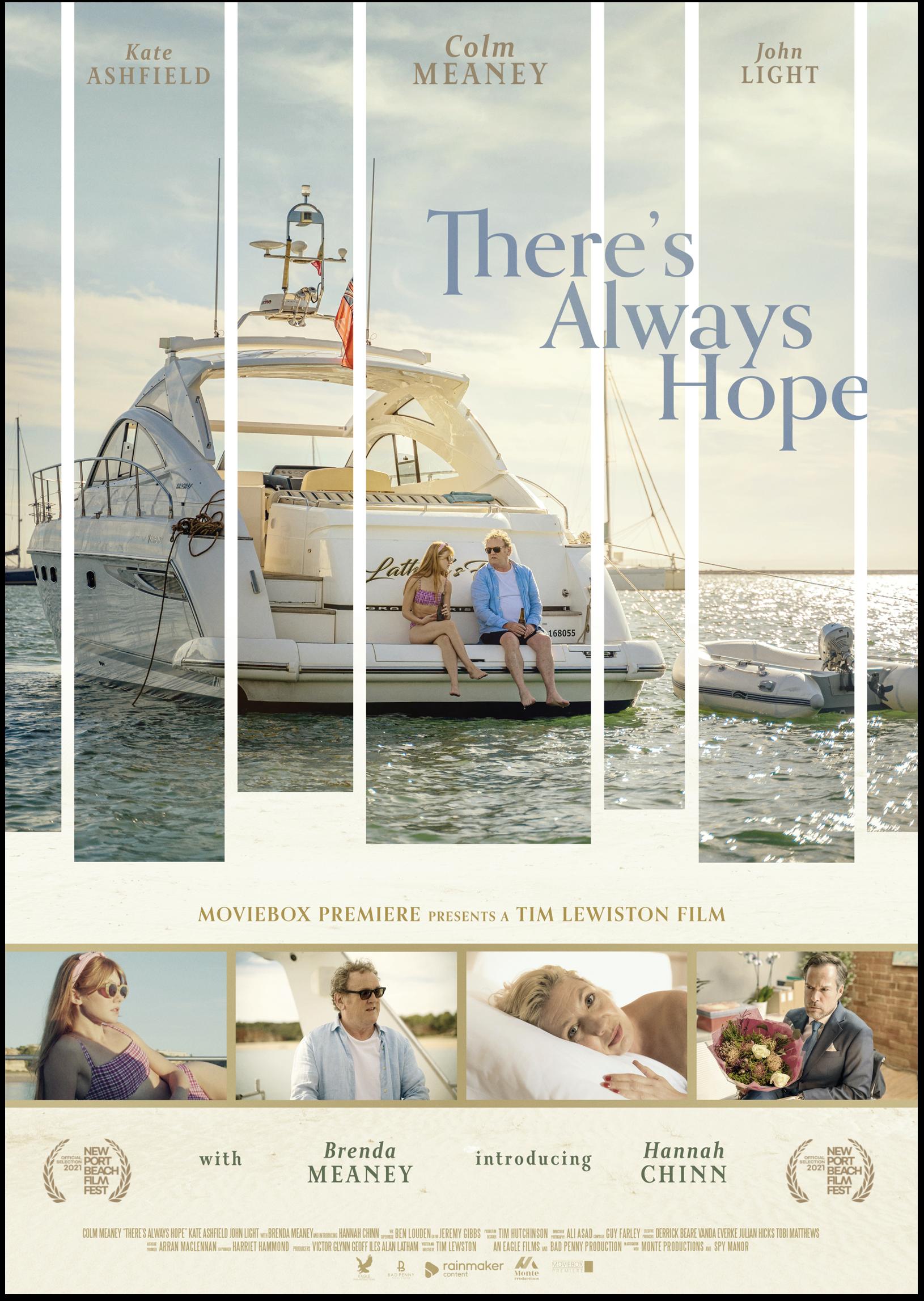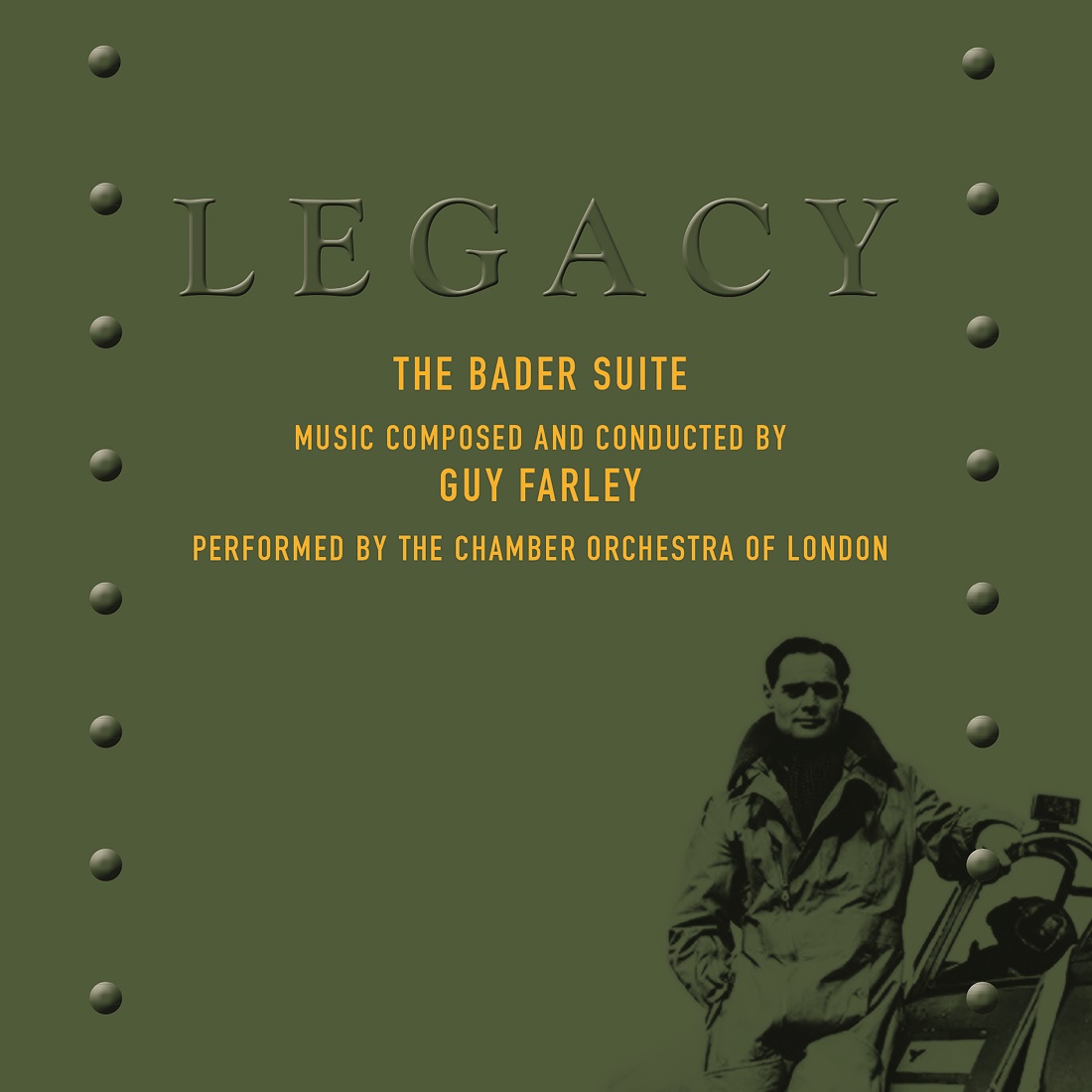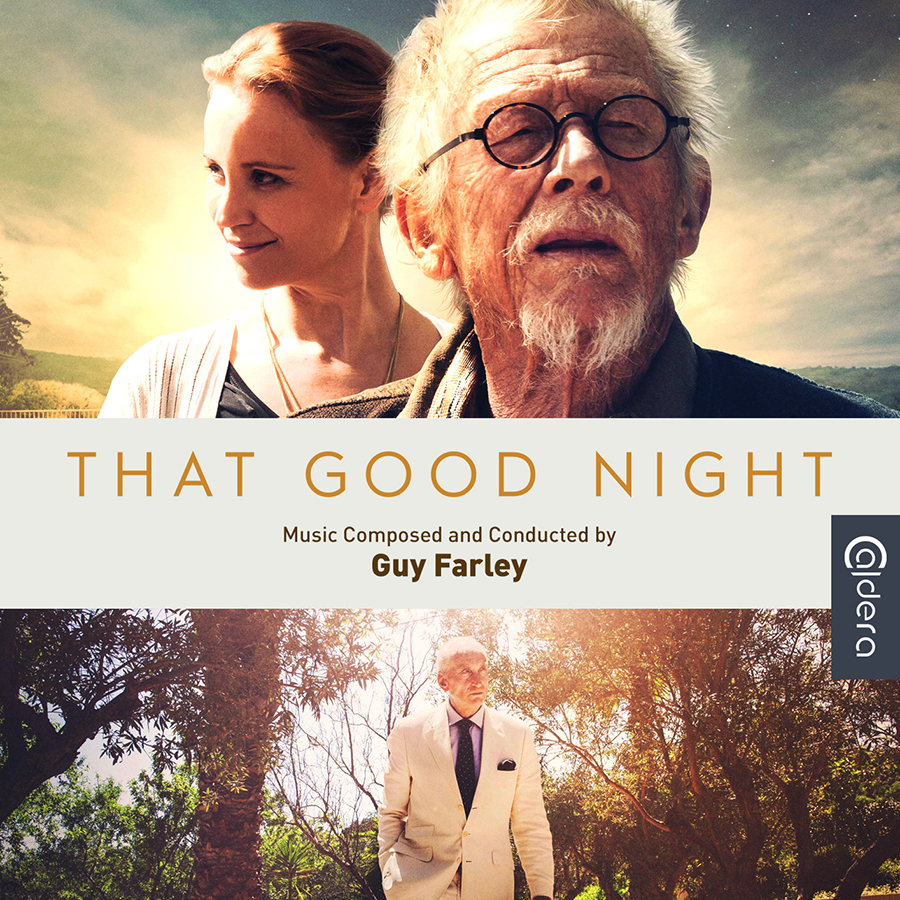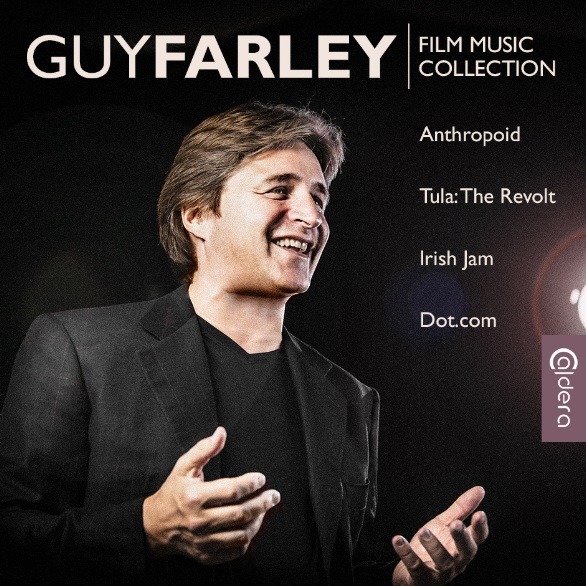|
Discovering his
darker side: Scoring Book of Blood and The
Broken
Interview with Guy Farley
conducted through e-mail on 2nd September 2008
by Petr
Kocanda

Q: The most interesting current project for
me personally (both film and the score) is THE BROKEN, which
seems to be finished for a few months already and still
awaiting its release. When did you record this score and are
you considering possible CD release? Could you, please,
describe THE BROKEN score in terms of orchestration and
thematic material? With such a rich history of great genre
scores, were you influenced by works of any of genre
specialists (Herrmann, Goldsmith, Young, Beltrami,...) while
working on this one in particular or on any of your
recent genre scores?
Guy Farley: As usual
we never really know about definite film releases until they
are released!! I wrote my score to The Broken between
September to December 2007 in London. I had started writing as
early as April 2007 after I had been to view some footage
following daily filming. The look of the film was outstanding
and I knew Sean Ellis, the director, would make something
beautiful and interesting. I remember thinking that I would
have taken the film on just seeing some of the dailies! Sean
and I discussed the music, which was to be very different from
'Cashback', which I had scored for him in 2005. He wanted a
new and original sound. He wanted an orchestral score because
he loves the richness of a performed score, but he also wanted
a very unusual sound, one he could not describe but felt he
would know when he heard it.
When they started
filming I took some time to study avant garde composers of
20th century, like Penderecki, Xenakis, Ligeti, Stockhausen,
Boulez, Varese, listening and reading unusual works and
scores. This was a wonderful experience for me because music I
had never been able to listen to and enjoy started affecting
me and I found great beauty in works I could barely listen to
10 years before. I suppose it was part of the extraordinary
journey of discovering music and how it affects you through
the passage of time and one's own development. I loved
listening to the works of these composers.
For the score it
was a question of how to utilise a modern orchestra, inspired
by the aforementioned, to create some sort of original sound,
that ultimately would work to picture. The next problem was
how to show these ideas, most of which were 'orchestral sound
design', to the director. You may know that these days
directors and producers want to hear demos of scores and in
most cases every cue, the whole score. On the whole this can
be done because computers and samplers have come so far that
most musical instruments can be found and used to create good
demos, but its difficult to show musical sound concepts which
one can write on manuscript for an orchestra to play but which
cannot be found or easily created as a demo!
This score
took a long time to write and produce. It was a hard score for
me to write because I had never written this genre of music
before. It was all original to me. To give you an example of
this, the opening scene of the film, (a montage of a girl
gettng up in the morning and going across London to collect
her car intercut with visions of a special hospital
department, about 4 and a half minutes in length), I scored 8
times! At first, having received the locked film, I saw
it as a very good looking thriller and I threw out all my
'avant garde' ideas in favour of presenting a well crafted
rich sounding modern thriller score (no influences, just how I
reacted to picture and what I felt). When I played my demo to
the director he congratulated me on scoring the opening scene
of his film and introducing the story but he then said that
what I had written, as good as it was, was just predictable
and unoriginal.
So after 7 more attempts at looking
at different ways to score this scene I returned to my April
ideas and the whole final 4m30 cue is an extraordinary mixture
of sound culminating in a long dissonant/consonant crescendo
as our actress drives her car into the city. The cue opens
with 24 violins playing their highest possible note, uneven,
within which a section glisses down an octave and back up
again. I recorded this and then dropped the mix into my
computer where I re-pitched the whole piece 2 octaves lower. I
then stacked the sound on the dominant and tonic above. The
sound was unlike anything I had heard before (or the director
for that matter!) because it was, after all, still the sound
of 24 strings playing live and the sound of the room - only
slowed right down where room noises, bow noises, chair noises
became part of the sound. The recording process was filled
with unusual sounds for me.
I even told the orchestra
that I wanted ambient noise in the sound. I used this in
various ways throughout the score. I wrote pieces/ideas by
hand for the orchestra and then after mixing, re-pitched the
performances. It gives a strange, weird sonic quality which
sat well with picture. Sean loved it and the score found its
direction after a month of trying these ideas.
I think
there are only 3 melodic cues in the whole score! The rest is
what I call 'orchestral sound design' mixed with electronic
ambience. The line up was strings, 2 piccolos/flutes, Oboe,
Clarinet/Bass clarinet, Bassoon/Contra bassoon, 4 horns, 3
trombones, percussion, harp and piano, 2 voices.
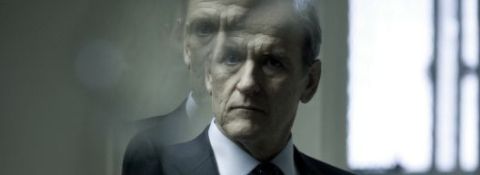
Q: What is your opinion on temp tracks? Do
you prefer seeing a film with the temp score and discovering
director's vision of the music or do you prefer seeing the
film without the temp and therefore be able to develop sound
palete of particular scores completely by yourself?
G. F.: Temp tracks - They
work two ways. First, they are a good way for a director to
find where he wants music and how he thinks it should be. It
allows directors(often with limited musicianship) to point out
instruments they like, emotions, pace, dynamic, peaks and
troughs etc. This is where temp music is a good and a fast
means of communication between director and composer. Second,
is the huge problems that come form
directors/producers/editors falling in love with temp music.
Where a well know piece of outstanding music is used that
simple cannot be 'beaten' in its affect of those who put it
there.
Remember temp music lives for a few
months while films are cut. People get used to it. It becomes
a big problem when you, as composer, are effectivey asked to
emulate or copy the temp. I fight against this all the way. I
despise its limitations and control, its unoriginality and its
comprimise.
So, temp music works both ways. But,
beware, its thin ice, tricky ground.
Personally I think a film should be
edited without temp music so that it stands up 'unaided' by
music. Then when the film is working you will see where and
why music is needed. In this situaton I don't mind if they use
temp music as a guide but I will usually only listen to it
once. I don't want temp music to influence my score in any
way. I am always satisfied when I accidentally hear a piece of
temp music after I have written my cue and find how different
they both are! After all temp music came from another composer
usually scoring a completely different story and film!
I always put together my sound
palete both before and after discussing the music with the
director. Some directors really want to get into the make up
of the score, the instruments etc and others would rather
leave all that up to you preferring to react to the new
original music when they hear it.
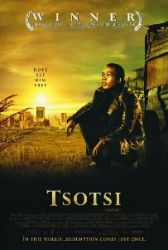 Q Q: I asked Mikael Carlsson about possibility
of some more releases of your music and he mentioned that you
are working together and discussing some more possible
projects. Very interesting release might be your unused score
for TSOTSI. Is Tsotsi one of the projects you might consider
for possible release or are there some obstacles caused by
production company you are aware of, which might prevent
Tsotsi from being released?G. F.: Mikael has now
released 3 of my scores. I am sure we will continue to work
together as long as he likes and believes in my work.
'Tsotsi' was an unusual situation.
Here I was asked by the producers to re-score an already very
strong film. It was not the wish of the director whom I never
met during the entire process. So I was scoring for the
producers who simply wanted a more melodic, thematically
memorable score with the use of Kwaito (South African Urban
music) as part of it, other than the source music. But the
film, in its strength, did not need to be made by the music. I
wrote a very different score than the original. Mine was based
around one main theme played by African flutes, Female African
voice and orchestral strings. In fact most of my score was
written around strings. I did write for African
percussion/kalimba and unusual woodwind like the Bass Ocarina
but these instruments sat around my thematic score led by
voice and strings.
My score, which is not on the film
today for various political reasons, sat well in the film but
I am not sure how it plays without it. (I haven't listened to
it since I did it and nor have I sent it out) I have retained
ownership of it and so possibly it could be released but I am
sure if would have to be under a different title. I would have
to look into this.
Q: Have you already finished working on all
your upcoming projects for this year (besides The Broken and
Book of Blood also KNIFE EDGE and I KNOW YOU KNOW)? After Book
of Blood are there any other upcoming projects you will be
working on during the rest of this year? There are some rumors
circulating that you signed to score Mick Davis' DYLAN - are
you really attached to this project? Any chance that you might
visit Prague again in near future? Which scores you recorded
here so far?
G. F.: I
have completed, this year, Knife Edge, The Flock (USA
version), I Know You Know, and Book of Blood. This week I am
meeting with my agents to decide what project to do next!
Which is exciting! Mick Davis's 'Dylan' is on hold for
the moment.
Prague? I love Prague. But today I
got an email from my Prague Orchestral Contractor saying that
Smecky Studios is up for sale! However I love the Dvorak Hall
but its difficult to book it with short notice. I have
conducted and recorded my scores for 'L'Amore e la Guerra' and
'Knife Edge' in Prague.

Q: Speaking about BOOK OF BLOOD, Mikael
Carlsson wrote very interesting description of score's
orchestration that also includes Monochord. How did you
discover this instrument? Are you using it as a rhytmical
effect or more like a solo instrument?
G. F.: I
discovered the Monochord when I was writing the Indian music
in 'Madre Teresa' and I was searching for instruments which
could drone, other than the Tambura (traditional for drones).
Sonia Slany who owns, plays and performs the monochord is
married to a brilliant ethnic percussionist Paul Clarvis who
was playing percussion in my score. It was his introduction
and worked in such an original and undetectable way. I knew I
would use it again but only in a certain way. In 'Book of
Blood' my engineer Josh mic'd it with 9 microphones so we had
it recorded in 5.1, room mics and stereo!
I spoke to Sonia about writing for
it before I started and used it for a 'character' sound within
the score. It is primarily a drone producing instrument but
with 50 strings it gives of the most amazing harmonics and
resonances. In some cues we de-tuned some of the strings to
make the sound even more eerie. The sound was fantastic in
5.1!
Q: Before you started working as a film
composer, were you familiar with some film composers of the
past that influenced you to become a composer or you were
mostly influenced by classical music during your
youth?
G. F.: My musical
background was diverse in that I was brought up with the music
of Mozart, Beethoven and Chopin, but also with Rock Operas of
the 60's/70's and music from Elvis to Gershwin. I have my
family to thank for that. I loved film music though. I loved
how it made me feel and what it evoked, so I started listening
to film music at an early age. In fact my first single was the
theme to The Persuaders by John Barry. I remember being so
excited buying the LPs for Barry's Bond Scores when they
eventuall came out. But I also listened to and bought Mancini,
Herrman and Maurice Jarre, Francois Lai and Michel
Legrand.
I never stayed musically in one
place, I always went through phases. From Prokoviev to Stan
Getz, from Led Zepplin to Carl Orff. I searched for music
which had the most profound affect on me. Music that, through
its intense beauty and depth, could reduce me to tears. You
only need listen to the melody appear in Ravel's 'Daphnis and
Chloe' to appreciate this effect!
In 1992 I spent 3 days at Abbey Road
with John Barry while he recorded his score for Attenborough's
'Chaplin'. This event had a profound impact on me, indeed life
changing. It was an incredibly moving experience to witness
this great film composer conduct the English Chamber Orchestra
in front of a full size screen, to picture. No click tracks
all conducted 'live' to film. A beautiful score and great
experience for me. I remember being in the booth with Anthony
Hopkins, Dickie Attenborough and Robert Downey Junior, yet
entirely focused on John Barry and his 'sound' - I have a
picture of JB and me on the conductors stand at that
session.
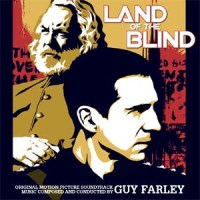 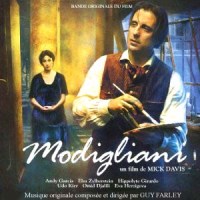
Q: Do you have a personal favorite among
your scores (both released and unreleased)? Or would you say
there was one score that opened you the doors to more
projects?
G. F.: I loved writing my
score for Land of the Blind. I wrote the themes very quickly
but it was the orchestration and eventual sound of the
orchestra and what I did with it that I loved. I feel proud of
it. But I always feel there is a cue or two in each score
which touches me. If I had to take one score away with me it
would probably be 'Modigliani' because there is so much in the
whole score, thematically, instrumentally and
emotionally.
Special thanks to Mikael Carlsson and
especially to Guy Farley for being so generous with his time
and patience.
If you want to
submit some questions,contact
me.
|


 Q: I asked Mikael Carlsson about possibility
of some more releases of your music and he mentioned that you
are working together and discussing some more possible
projects. Very interesting release might be your unused score
for TSOTSI. Is Tsotsi one of the projects you might consider
for possible release or are there some obstacles caused by
production company you are aware of, which might prevent
Tsotsi from being released?
Q: I asked Mikael Carlsson about possibility
of some more releases of your music and he mentioned that you
are working together and discussing some more possible
projects. Very interesting release might be your unused score
for TSOTSI. Is Tsotsi one of the projects you might consider
for possible release or are there some obstacles caused by
production company you are aware of, which might prevent
Tsotsi from being released?


